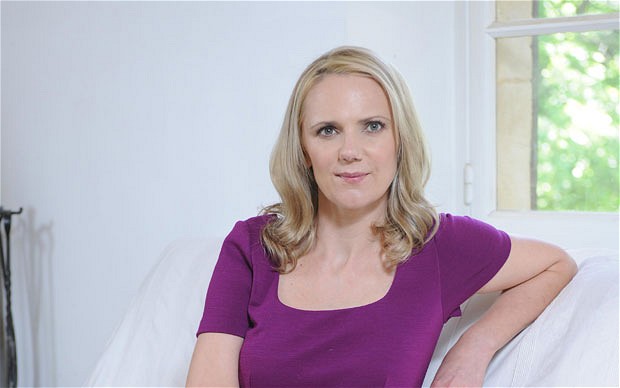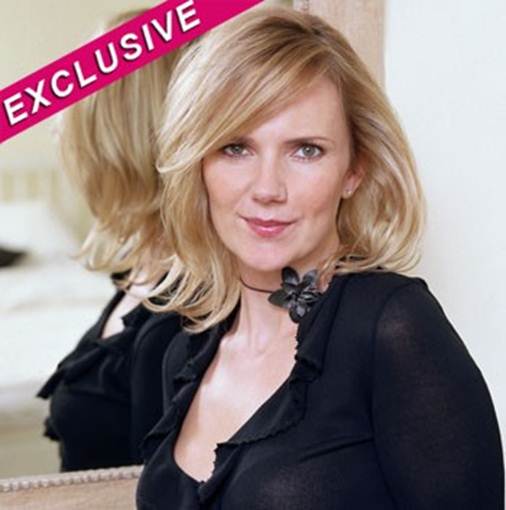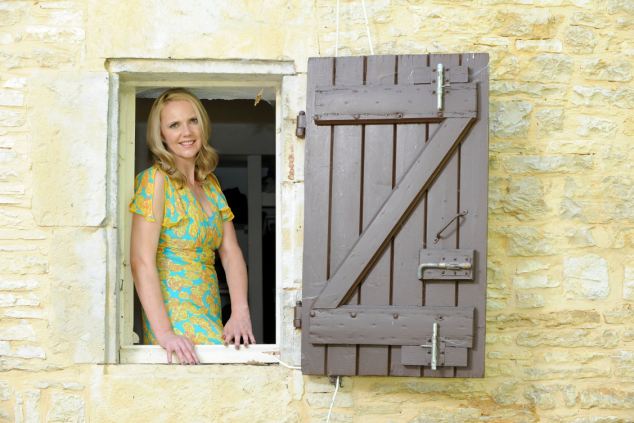Everything a famous woman says something vaguely
controversial, it seems as if other women line up to attack her. So, asks Zoe
Williams, why do we have to condemn each other’s choice?
When the Samantha Brick affair broke, I was in France, in a
house with an okay view but the worst Wi-Fi coverage ever. If the future
somehow passed you by, here’s what sparked it: in April, a journalist, Samantha
Brick, wrote a piece in the Daily Mail with the headline Why Do Women Hate
Me For Being Beautiful? and it cause an uproar. The first whiff I got of it
was a few mentions in my Twitter feed: it took no time at all to work out what
she’d said. (“Delusional, mediocre whore!” said one tweet. “Women do not hate
you because u r 2 pretty, they hate u because you are a self-absorbed jerk!”
yelled another.) There were people calling her swear words I’d never even
heard. A “moms’ group” in Tampa, Florida, had written an open letter to her,
under the title People We Want To Punch In The Throat. (It was actually
really funny – but ladies, seriously, punch her in the throat?)

“Women do not hate
you because u r 2 pretty, they hate u because you are a self- absorbed jerk!”
Immediately, I put my holiday on pause to read the piece.
Every single thing that article was intended to make you think, I immediately
thought. 1) What an unpleasant way to look at the world, as one unending
bitch-fight over male attention that you don’t even seem to enjoy that much. 2)
Ew, look at you, you’re not even that good-looking. 3) That’s it, I give up on
feminism. If women in their forties still can’t tell the difference between
equality and some gooey idea of us gals all sticking together, what hope is there?
They played me like a violin – the editors of the newspaper I mean, not the
author. I suspect Brick had been played like a violin as well.
It was a silly piece, written for effect; some commentators
made sophisticated observations about it and others, taking it at face value,
probably got more upset about it than any first-person journalism could ever
warrant. What really stayed with me, after the newspapers went in the recycling
bin and the argument was over and forgotten like spring hail, was the vehemence
of the response, the sheer nastiness. For a couple of weeks, women hated
Samantha Brick. More than 5,000 comments underneath the article savaged her;
the Twitter rage was immeasurable. It was out of all proportion to anything she
had done. I tried to imagine a man ever eliciting that kind of rage, just by
claiming men hated him because women found him irresistible. It would simply
never happen. Laughter, mild pity- maybe the delicate suggestion that he might
be reading too much into things… but rage? Not a change.

This is about the
most foolish urge women have ever conceived – far, far more idiotic than liking
men on motorbikes or trying to wedge our feet into unnatural structures\
This is not about beauty, or self-confidence, or
competition, or miserliness, it is not about sexual politics, and it isn’t
really about neurosis. This is about the most foolish urge women have ever
conceived – far, far more idiotic than liking men on motorbikes or trying to
wedge our feet into unnatural structures: it is our desire for consensus. It’s
meant to be so sweet and feminine, the way we iron out our differences and feel
our way towards agreement. But it’s not sweet – it’s rigid, it’s
straitjacketing and it’s unbelievably savage.
What is really amounts to is the belief that it’s not enough
for any given woman to be right; a woman who’s gone in a different direction
has to be wrong. If I have children, women without children have to be empty
and unfulfilled. (Lucy Worsley – the impish telly historian – for example, had
the audacity to claim recently that she’d been “educated out of the natural
reproductive function”. Oh. My. God. The fall-out, the ferocity of the online
comments from women about it… it would honestly only be warranted if she’d come
out as a member of the BNP.) If don’t have children, women with children have
to be blowsy and moany. If I’m single, married women have to be frustrated and
mousy. If I’m married, single women have to be tragic and bitter. If I have a
career, women who don’t work have to be thick. If I don’t have a job I’m proud
of, women who do have to be ballbusters. If I have an opinion, well, that just
goes to show what an idiot I am.

What is really
amounts to is the belief that it’s not enough for any given woman to be right;
a woman who’s gone in a different direction has to be wrong.
Have you ever wondered what it is people hate so much about
the wife of the Speaker of the House of Commons, Sally Bercow? I mean, all she
does is occasionally say what she thinks. It should be possible to disagree
with her without trolling her. And this goes for any women with a view, right
across the political spectrum, from feminist writer Laurie Penny to politician
Louise Mensch. It’s never enough to disagree with them; the trolls always lurk
just beneath the surface, waiting to say that not only are they wrong, but they
are also fat.

You can’t be proud
of anything, as a woman, because that very satisfaction is a diss to very other
woman, except your exact peers.
Have you ever noticed how men sometimes say on their
Facebook profiles “proud husband and father”? A woman writing “proud wife and
mother” would be ripped to shreds. She would be pulled up from the roots of her
smug-yet-surrendered wifeliness, dismembered by the joints of her mawkish
maternalism. But nor would a woman, leastways not over a certain age, be
allowed to express pride in being single or childless – that would be taken as
a tragically transparent bluff (conversely, a man, still single and childless,
regardless of his age? Living the dream, ladies and gentlemen). You can’t be
proud of anything, as a woman, because that very satisfaction is a diss to very
other woman, except your exact peers. So all you can do is moan, but if you
moan too much, that in itself is disrespectful to women who aren’t as lucky as
you.
Another journalist, Bibi Lynch, said exactly what I just
said, except that she wasn’t pointing out how ludicrous it was, in a piece in The
Guardian earlier this year: Mothers, Stop Moaning! it was entitled.
“I will never mean as much to anyone as you do. Imagine that, mums. Believe me,
you don’t know you’re born.” Now, I don’t accept that premise – one person’s
disappointment over not having children can’t realistically shut down an entire
social conversation, in which parents talk to one another, openly. Nor do I
accept the tidal wave of bile that came after it (“Who does she think she is?”
ect), nor the hunk of burning spleen thrown back at them (“The cult of
motherhood makes me nauseous”) – I don’t accept any of it. I do not accept
that, in order to live with our decisions, w have to annihilate everybody
else’s.

The fact that we
don’t allow ourselves to be self-confident, because the ultimate goal is
conformity and confidence would be interpreted as an accusation of some other,
different woman… that’s not some irrelevant quirk.
When I was at university, we used to talk about the language
of self-deprecation, the way women exaggerate their rubbishness as a harmless,
easy way to be liked. I have (in my infinite wisdom) come to realise that it
isn’t harmless. (Eat that, younger women. I’m like you, only wiser!) The fact
that we don’t allow ourselves to be self-confident, because the ultimate goal
is conformity and confidence would be interpreted as an accusation of some
other, different woman… that’s not some irrelevant quirk. It’s like trying to
run a marathon having first tied our ankles together. We have been trying, and
falling, to define the ideal woman for as long as I have been alive. Even if we
could agree upon what this hell-beast would look like, there is no way most of
us could match it. And, honestly, who would want to?